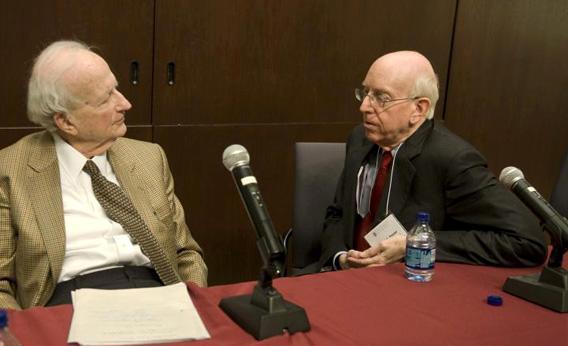Judge Richard Posner is an iconic thinker and jurist, prolific in his writing and his impact. He helped create the intellectual foundation for the “law and economics” theory that is skeptical of government’s role in the market. What is remarkable about his thinking is that having seen the consequences of an era of deregulation and of government’s withdrawal from market intervention, he is now taking a significantly different approach. Posner now says that:
- Market deregulation as a theocracy had devastating consequences and contributed significantly to the financial cataclysm of 2008. Smart re-regulation of financial services is absolutely critical.
- Government intervention in areas where externalities impact folks other than the consumer is correct theoretically and often practically. For example, a carbon tax to reduce our consumption of carbon fuels and reduce greenhouse gas emission would be a smart move. Perhaps more surprising, Posner supports New York Mayor Michael Bloomberg’s effort to reduce sugary drink consumption by limiting the size of containers in which the drinks may be sold. Obesity and its societal impact merit this limitation on consumer choice, the judge argues.
- There is scant evidence to support the notion that raising marginal tax rates to Clinton-era levels would reduce work by people, and the revenue is necessary. The supply-side argument that reduced tax rates will increase revenue simply isn’t fact based.
- Originalism as an intellectual foundation for constitutional interpretation is a mere gloss over results-oriented jurisprudence. It is not a useful way to make an old but wise document applicable to the modern era.
- Corporate governance is failing us. CEOs are running roughshod over their own hand-picked boards of directors. Shareholders have not responded with sufficient energy, and it is hard to imagine that they will.
Wouldn’t it be wonderful if the politicians who publicly embrace and promote the worldview of deregulatory theocracy and supply-side economics listened to one of their own intellectual leaders?
Posner is free to evolve on these issues because he does not profit from the current financial climate, and he isn’t beholden to it. He is simply making thoughtful conclusions by looking at evidence. My challenge to Republicans: Look at the facts. We all can’t be as smart as Posner. But we all can think for ourselves.
